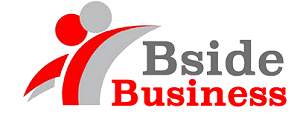Navigating Tax Season: Top Tips from Your Local Accounting Firm

Tax season can feel overwhelming, but you’re not alone. A Charlotte accountant offers guidance to make this process smoother. You must first gather all necessary documents, like income statements and receipts. These form the backbone of your tax filing. Next, remember deadlines. Mark them on your calendar to avoid penalties. Third, consider electronic filing. It speeds up the process and reduces errors. Be aware of deductions too. Many miss out on savings due to overlooked deductions. Lastly, when in doubt, seek professional advice. A local accountant can clarify confusing details and ensure you get the most from your return. They are not just advisors. They are partners ready to shoulder some of your burdens. Use these tips to approach tax season with calm confidence. Manage your tasks step-by-step, and you’ll see that tax season doesn’t have to be stressful. It can be a chance to organize and plan for the year ahead.
Organize Your Documents
Start by collecting all essential paperwork. This includes W-2s, 1099s, and any relevant financial statements. Keep these documents in one place. A simple folder or binder works well. Regular updates to this folder will help prevent last-minute panic.
Download or print your forms online. For more information, the IRS website provides a comprehensive list of forms you might need. Stay on top of your records. This effort will save time when you sit down to file.
Understand Key Deadlines
Awareness of deadlines prevents costly mistakes. The deadline for most individuals is usually April 15th. However, in some cases, extensions may apply. If you need more time, file for an extension, but remember any taxes owed are still due.
A missed deadline can lead to penalties. These can add up quickly, increasing stress. To avoid this, set reminders a month before to give yourself ample time.
Filing Methods: Paper vs. Electronic
Consider how you file your taxes. Traditional paper filing still exists but comes with a higher chance of errors. Electronic filing offers speed and accuracy. It also provides quicker refunds.
| Filing Method | Advantages | Disadvantages |
|---|---|---|
| Paper Filing | No computer needed | More errors, slower refunds |
| Electronic Filing | Faster refunds, fewer errors | Requires access to a computer |
The IRS promotes e-filing, which you can explore further on their e-file options page.
Maximize Deductions and Credits
Don’t overlook deductions. These can significantly reduce taxable income. Common deductions include mortgage interest, student loans, and medical expenses. Tax credits directly reduce the tax you owe and are even more beneficial.
Become familiar with available credits such as the Child Tax Credit or the Earned Income Tax Credit. Understanding these options means more money in your pocket. Always double-check eligibility for each deduction and credit.
Seek Professional Assistance
Taxes can be complex. Sometimes, guidance from a professional is invaluable. Accountants have the expertise to navigate complex tax laws and can find opportunities you might miss.
When choosing an accountant, check their qualifications and reviews. Many offer free consultations, which can help you decide if they are a good fit.
Final Thoughts
Tax season doesn’t have to be a source of anxiety. With the right preparation and mindset, it becomes manageable. Start by organizing your documents. Be mindful of deadlines. Consider electronic filing to simplify the process.
Take full advantage of deductions and credits. When in doubt, consult a professional. Their expertise will save you time and money. By following these steps, you can face tax season with confidence. Remember, careful planning today means a smoother process tomorrow.











